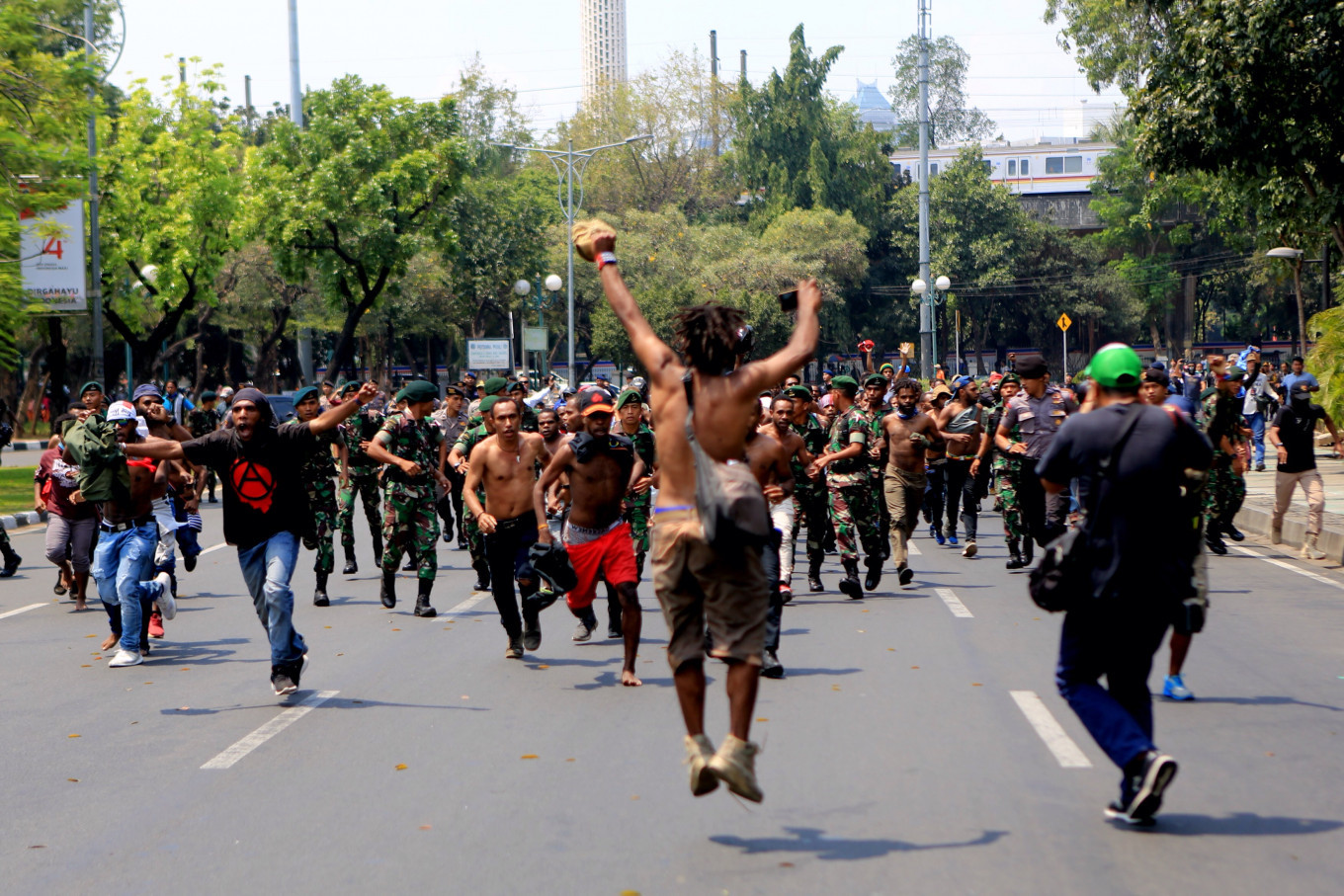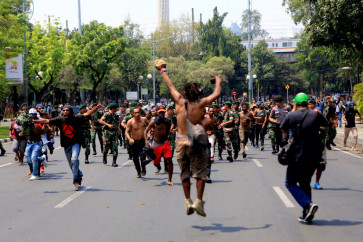Popular Reads
Top Results
Can't find what you're looking for?
View all search resultsPopular Reads
Top Results
Can't find what you're looking for?
View all search resultsPapua and the need to revisit nationalism
The abuse of both security officers and some youth organizations against the Papuan students in the Surabaya and Malang incidents reflects the remnants of old-fashioned nationalism.
Change text size
Gift Premium Articles
to Anyone
 The aggrieved: Escorted by military personnel and police officers, Papuans demonstrate in front of the Presidential Palace in Central Jakarta on Thursday. Protesters called on the government to take seriously cases of physical and racial abuse against Papuan students by security personnel in Surabaya, East Java. (JP/Seto Wardhana)
The aggrieved: Escorted by military personnel and police officers, Papuans demonstrate in front of the Presidential Palace in Central Jakarta on Thursday. Protesters called on the government to take seriously cases of physical and racial abuse against Papuan students by security personnel in Surabaya, East Java. (JP/Seto Wardhana)
R
ecent protests in Papua as detailed in the front page of The Jakarta Post on Aug. 20 and/ 21 should encourage us to revisit the prevailing concept of nationalism.
What exactly is its nature? To tell you the truth, the concept is a blur to me. But just as a starting point, the recent Papua protests, triggered by racial abuse against Papuan students in Surabaya, East Java, reminds me of my father’s decades-old message: “Katuleh phat teumpat Aceh dalam perjuangan kemerdekaan Indonesia. Mangat bandum thee Indonesia kon ji peudong dek saboh kaum mantong.” (Write down Aceh’s place in the Indonesian independence struggle. Let it be public knowledge that Indonesia was not established by one group of people only).
My late father was one of the independent fighters in Aceh during the 1945-1949 Indonesian Revolution.
Today, it seems to me that his “instruction” reflects an idea of “egalitarian nationalism”. No one can claim to have contributed the most to the birth of Indonesia. At this juncture, I think we get the point of not only reordering the concept of nationalism but also finding a viable and fresh view of the place of Papuans in Indonesia today.
To put this in perspective, we must firmly state that Indonesia is a “collective creation”. Why? Because soon after our proclamation of independence on Aug. 17, 1945, numerous peripheral regions greeted the birth of this new nation. In Aceh, the ulema read the Oct. 15, 1945, Makloemat Oelama (Ulema Declaration) to state their steadfast support for the proclamation.
In his speech in the Banda Aceh Grand Mosque, prominent ulema Teungku Muhammad Daud Beureu’eh declared the people of Aceh who had died in defense of Indonesian independence as martyrs. This was followed by — besides the establishment of the People’s Security Army (TKR) led by Col. Sjamaun Gaharu — several youth independence fighter groups.
A bit earlier in West Sumatra, Muhammad Sjafi’e of the Kayu Tanam Education Institute read the West Sumatran version of the proclamation on Aug. 29, 1945, and declared total support for the Sukarno-Hatta independence proclamation. In Gorontalo, a local fighter named Nani Wartabone went a step ahead of Sukarno-Hatta as she had proclaimed Indonesia’s independence shortly after the Dutch left Indonesia in 1942.

















